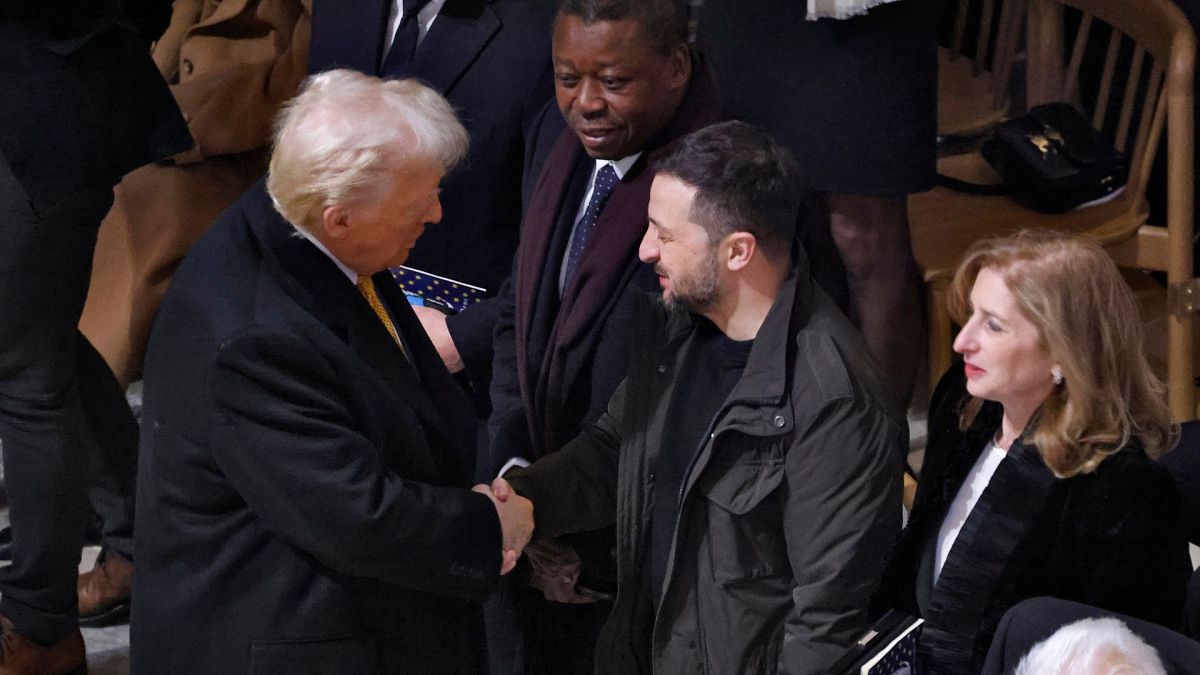Trump’s remarks, including thoughts on reducing US military aid to Ukraine and reconsidering NATO membership, have sparked concern among allies and security experts.
US President-elect Donald Trump has called on Russian President Vladimir Putin for an immediate ceasefire in Ukraine, describing the move as part of his active efforts as president-elect to end the conflict, despite being weeks away from assuming office.
“Zelenskyy and Ukraine would like to make a deal and stop the madness,” Trump wrote on his social media platform, Truth Social.
In a televised interview aired on Sunday, Trump suggested he might reduce military aid to Ukraine and even reconsider US membership in NATO.
These remarks have raised alarm among Ukraine, NATO allies, and US national security experts.
When asked on NBC’s Meet the Press if he was actively working to end Moscow’s nearly three-year-long war in Ukraine, Trump confirmed, “I am.”
However, he declined to reveal whether he had spoken to Putin since his November election victory, stating, “I don’t want to say anything about that, because I don’t want to do anything that could impede the negotiation.”
Trump’s proposal, shared after meetings with French President Emmanuel Macron and his Ukrainian counterpart Volodymyr Zelenskyy in Paris, urges an immediate end to hostilities and the start of negotiations.
“There should be an immediate ceasefire, and negotiations should begin,” he wrote on social media, adding, “I know Vladimir (Putin) well. This is his time to act. China can help. The world is waiting.”
His comments refer to Beijing’s ongoing mediation efforts, which many in the West perceive as favouring Moscow.
Zelenskyy described his discussions with Trump, accompanied by Macron, as “constructive” but reiterated the need for a “just and robust peace” that would not collapse under future Russian aggression.
“When we talk about an effective peace with Russia, we must talk first of all about effective peace guarantees. Ukrainians want peace more than anyone else. Russia brought war to our land,” he said in a Telegram post on Sunday.
Furthermore, in the interview, Trump warned NATO allies that continued US participation in the alliance could impact their military spending commitments.
While NATO members have increased their defence budgets partly due to pressure during Trump’s first term, Trump suggested the US might withdraw from the alliance if these commitments fall short.
“If they’re paying their bills, and if I think they’re treating us fairly, the answer is absolutely I’d stay with NATO,” Trump said.
Trump replied, “Absolutely. Yeah, absolutely,” when asked if he would consider pulling the US out of the alliance if the commitments were unmet.
When asked about cutting US aid to Ukraine, he responded, “Possibly.”
US arms and military support are crucial to Ukraine’s defence against invading Russian forces, with Biden ramping up assistance to Ukraine ahead of leaving office.
Over the weekend, Defence Secretary Lloyd Austin announced nearly $1 billion (€945 million) in additional long-term weapons support.
Scepticism over Trump’s ceasefire proposal
Trump’s call for an immediate ceasefire has been met with doubt.
Retired Lieutenant General HR McMaster, Trump’s former national security advisor, warned against expecting a quick resolution.
“What I’m worried about is this flawed idea that Putin can be placated, that Putin will come to some kind of a deal.” McMaster told Fox News.
“How about giving them (Ukraine) what they need to defend themselves and telling Putin, ‘You’re going to lose this war?’”
Both Trump and US President Joe Biden highlighted Russia’s reduced presence in Syria as evidence of how the war against Ukraine has drained its resources.
Biden noted that Ukrainian resistance had “left Russia unable to protect its main ally in the Middle East.”
While the Biden administration has avoided pressuring Ukraine for an immediate truce, fearing it could force damaging concessions and allow Russia to regroup, Trump positions himself as capable of arranging rapid deals to resolve conflicts in Ukraine and the Middle East without providing proof of his claims or elaborate plans at this stage.
Read the full article here
